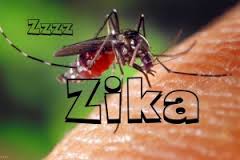It is very true that Zika virus may likely spread to Nigeria because the vector and all the factors that can cause Zika abound in Nigeria. We don’t know the strain that is spreading it but all we know is that the strain is spreading so fast. He told Good Health Weekly that with Nigerians in up and down movement, the possibilities are very high. Further, he stated: The recommendations by WHO was that there should be no more home management of any fever especially in women of child bearing age. People should be extremely cautious of exposure to mosquitoes and other factors that can cause these fevers.
There is also need for medical doctors and clinics to be on alert. Any sign of fever associated with Yellow fever etc. should be taken very seriously. We have sensitised so many clinics in the past,” he added. In line with the Integrated Management of Adolescent and Adult Illness, IMAI guidelines, WHO recommends that person at high risk for malaria be tested and treated with antimalarial agents only if the test is positive. For feverish adolescents and adults at low risk, WHO says malaria testing is recommended only in the absence of other apparent causes of fever.
In its publication, The Lancet announced that Nigeria, India, China, the Philippines, Indonesia, Vietnam, Pakistan, and Bangladesh were at high risk of Zika virus. In the report, a prediction of the future path of Zika, the researchers explained that Nigerians are among those at high risk following a new analysis of travel, climate and mosquito patterns in Africa. They also noted that no fewer than 2.6 billion people living in parts of Africa and Asia could be at risk of THE infection.
On why Zika may spread to Nigeria faster, the researchers blamed it on high travel rate, large population, suitable climatic conditions & limited health resources fuelling transmission risk, local presence of mosquitoes capable of transmitting Zika virus. The authors say that identifying where and when populations would be most susceptible to local transmission of Zika virus could help inform public health decisions about the use of finite resources. Countries with little resources, are urged to start early to plan for an equitable use of their resources, while protection against mosquito bites is to be adopted as a key measure to prevent Zika virus infection.
Source:Dialysis World

 The Acting Executive Director of the Economic Community of West African States, ECOWAS, Regional Surveillance and Disease Control Centre, RCDC, Prof. Abdulsalami Nasidi has cautioned Nigerians against home management of any type of fever, particularly in women of child bearing age.
The Acting Executive Director of the Economic Community of West African States, ECOWAS, Regional Surveillance and Disease Control Centre, RCDC, Prof. Abdulsalami Nasidi has cautioned Nigerians against home management of any type of fever, particularly in women of child bearing age.







